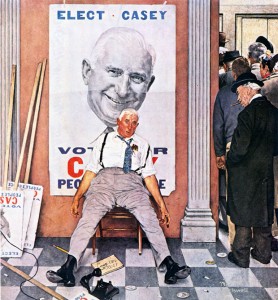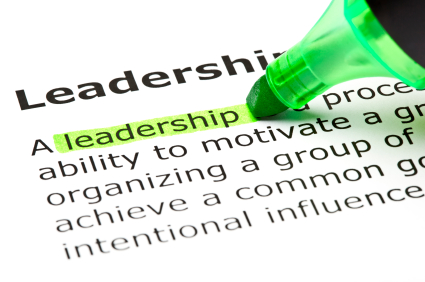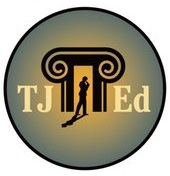Featured Articles:
Bonus article for Executives, Policy Wonks, Mission Phase Moms and the like:
TJEd NEWS:
* The Salt Lake TJEd Family Forum early registration discount (You DON’T want to miss this!)
* Texas TJEd Family Forum

For Adult Workshops and concurrent Youth Forum and Love of Learning Children’s Activity Center, there’s just nothing that compares with being in the same place with over 1000 other TJEders, many with their spouses, youth and children in tow! Inspiring speakers, educational classes, and a social experience that has no equal. Come join us at the TJEd Family Forum!
Just this morning I posted a query on Facebook to see what past participants might say. In just a few minutes my inbox was filling up with responses! Here’s a sampling: READ MORE >>

We’re making changes to our store options, and we think you’re really going to like it!!
While all digital products (including audio and pdf downloads) will continue to be available for purchase on TJEd.org with immediate delivery via email, starting today our hard-copy products will be fulfilled through our new partner, the outstanding and award-winning online homeschool store, Love to Learn! READ MORE >>
******************
Featured Article:
A New Way to Read
by Oliver DeMille
There is an old saying about effective studying that goes something like this: “know it backwards and forwards.” This idiom teaches an important truth, especially to modern readers. At first glance, it is obvious that reading deeply as opposed shallow skimming is more likely to net more knowledge and wisdom. At a deeper level, reading original sources is more conducive to quality education than settling for textbook-style summaries.
But “knowing it backwards and forwards” now has even more meaning to me. In fact, we could call this a new way to read.
I was skimming articles online when it hit me. I was researching background information for a chapter I was writing, and I wanted to know what others had already written on the topic. This is a common process for most writers, and it entails poring through mass amounts of information—often in a limited time frame. In such cases, the modern skill of surfing or browsing one’s reading is invaluable.
But depth is needed to make it stick.
To be skilled at skimming, the reader must shift back and forth, shallowly surfing one moment and then the next instant, without notice or guidelines, detecting something important and stopping to read with critical depth and applicational thinking. She must simultaneously analyze the content—its accuracy, relevance, application, etc.—and begin to couch it all in the juice of creative possibilities. All of this happens in split seconds – not as part of a plan but as the simple process of real reading.
In most cases the more a person does this, the better she gets at it. And the more she knows about a given topic or field of knowledge, the better she is at reading about it. This is why in Leadership Education we emphasize lots of discussion about what is read. People who discuss much of what they read with others naturally begin to read differently because their brains get in the habit of preparing for future conversations in multi-layered ways each time they read something.
On this day, however, I was reading on a new topic, and I was moving more slowly than usual. With so much information to skim, I was soon bored and eventually began wondering if this was a good use of my time. Maybe this topic is best left to the experts, I justified. Maybe I should stop and go get a sandwich.
I had hit this type of roadblock many times over the years, so I asked the key question:
Is this a time where I need to change my focus to something more inspiring?
/or/
Is it a case where I need to better inspire myself to push through and learn something hard but important?
My gut told me that I needed this, so I moved on to the next question:
How can I best inspire myself to keep working on this even though it is boring and frustrating?
Usually, the answer to this question is found in the text itself.
In my young adult years, when I was enthralled with history, political philosophy and biographies, and didn’t want to read literature, my mentor assigned Les Miserables. It was hard at first, but I kept reading. My mentor told me to smell the book—put it right up to my nose and smell the paper and ink.
Smell it? “Yes, smell it,” he said. “Then go read the last paragraph of the book and see how it makes you feel. And whenever you get bogged down and want to quit, randomly skip to a page far ahead in the book and read a paragraph or two. Keep doing this until you get interested, then immediately stop reading and go back to your real place in the book and read on.” I did it, smelling and all, and it worked. By the time I was done with this transformational book, I was forever hooked on great literature.
The text changed me.
Another example: When I found the math classics (including Nichomachus, Descartes and especially Newton’s Principia Mathematica) difficult, I stopped reading and told myself that somehow the text could inspire me. I spent nearly an hour looking through the texts for something inspiring, then I noticed a diagram with numbers arranged on the page in the shape of a triangle. I had an “a ha” moment, and begin studying the arrangement of the numbers. Not the equations, not the mathematical functions, not the proofs. I ignored the problems and the answers. Instead, I went on a quest to understand numbers and shapes. I got so interested that I spent the better part of two years studying the topic. When I finally got back to reading what the authors wrote and working on the math problems, I was in love with math and the whole thing was now fun.
The text had changed me.
 I experienced this in various ways over time, but I won’t outline it all here. Suffice it to say that when I decided to push through my reading on the new topic, I knew that somehow the way to inspire myself was right there in the text. I scanned the articles looking for an epiphany, but nothing seemed to click.
I experienced this in various ways over time, but I won’t outline it all here. Suffice it to say that when I decided to push through my reading on the new topic, I knew that somehow the way to inspire myself was right there in the text. I scanned the articles looking for an epiphany, but nothing seemed to click.
No Eureka.
Still no Eureka.
This is taking too long.
There were no numbers in the shape of triangles, no footnote that seemed odd and captured my attention, no reference to something I knew that triggered a new way of seeing things, and the last paragraph of every article left me increasingly less interested in reading more.
Then, quite by accident, something strange happened. I had read the last paragraph of an article (boring) and was about to turn the page when something caught my eye. It was a name in the second-to-last paragraph. I thought I recognized the name, but it turned out to be the same name for a different person who was an expert in a totally different field (who knew there were so many Hamiltons writing things?). But it got me to go back and read the paragraph.
Somehow, the momentum carried me and I read the third-to-last paragraph and then the fourth-to-last, and so on. I just kept reading. Like Newton’s laws of motion, I read the whole article backwards. Actually, I read the words in each paragraph in the normal order, but I read the paragraphs from the last right back to the first. It was fascinating. Weird, but interesting.
As I read, I quickly warmed up to what I was learning. Somehow, by separating the subject into a bunch of factoids without the precedents and buildups from the author, I found myself deeply interested. The jargon of expertise was gone, the monotone “Beuller Beuller Beuller” voice disappeared and the content of the article jumped off the page. I was learning, questioning, taking notes in my binder, and penciling in question marks in the margins with hopes that the answer would be found in earlier paragraphs.
When I finished researching for the day, I had dinner and family time then got ready for bed. Before sleeping, I noticed the works of John Adams sitting next to my bed. Just for fun, I picked it up and started reading from the end. I read into the night. I’ve read this book at least five times before, and it is all marked up with different colors of ink (black, blue, red, green, and pencil to mark the different times through it—which is how I know I’ve read it five times), but this time I made more notes than ever before (I woke up my daughter Eliza to ask for a colored pen, and she sleepily gave me an orange one).
The book came alive for me, again. It was like a whole new book. Each paragraph had so much to teach, and reading the conclusions before the evidence was fascinating. It’s hard to explain, but reading things backwards can be very inspiring.
I find it especially valuable in two situations: 1) reading something that feels boring, and 2) reading non-fiction classics that I’ve already read several times before. (Note that I haven’t found this method very helpful with fiction works. Eliza stared at me in amazement when I shared this gem with her. Then she shook her head and said, emphatically, “Duh!”)
This is certainly a new way of reading, at least for me. Maybe it’s old hat for you, but if not you might want to give it a try—especially if you feel the need to push through on something that is difficult for you to read.
 I’ve been using this now for over a year, and it still works. One day at lunch with a friend, Orrin Woodward, I was reading an article he had written, and he noticed that I read it all the way through and then read it again backwards. He asked me what I was doing, and I said, “I learn more from things when I read them forward and backward.”
I’ve been using this now for over a year, and it still works. One day at lunch with a friend, Orrin Woodward, I was reading an article he had written, and he noticed that I read it all the way through and then read it again backwards. He asked me what I was doing, and I said, “I learn more from things when I read them forward and backward.”
I hadn’t realized until that moment that I was following the advice of an old adage in the English language. Maybe we can learn a lot more from the old ways.
In any case, I hope you’ll give it a try. I loved what it did for my scripture study, which brought up another thought: “The last shall be first and the first shall be last.” If it works for you, great. If not, remember that the way to inspire yourself to study something, especially something challenging, is often (for me, so far, always) right there in the text itself.
We just have to spend enough time and effort to let the classics do their magic.
If you liked this article, you might enjoy, “How to Read a Book” by Oliver DeMille and Brad Bolon >>
******************
Featured Article:
Teaching Heart, Mind and Soul
by Oliver & Rachel DeMille
In the Flow
 Most of us have experienced times when learning just flowed, when it felt so right—and we seemed to be magnets of ideas and questions and knowledge. This is a normal state of learning when one is truly inspired. And it need not be a rare, spontaneous or haphazard occurrence. It can be the common state of studying, virtually day in and day out.
Most of us have experienced times when learning just flowed, when it felt so right—and we seemed to be magnets of ideas and questions and knowledge. This is a normal state of learning when one is truly inspired. And it need not be a rare, spontaneous or haphazard occurrence. It can be the common state of studying, virtually day in and day out.
This does happen regularly when students are actively discovering, developing and polishing their deep areas of genius. When this occurs, they feel passionate, dedicated and excited about studying.
Schools have long tried to duplicate this for every student, but even Anne of Green Gables or John Keating (Robin Williams’ role in Dead Poet’s Society) could only reach some of their students. As soon as this type of great teaching is institutionally systematized, structured and enforced, it is fundamentally altered and essentially disappears. No U.S. president can “fix” education, no law can systematize inspiration, and no amount of funding, policy or resources can structure passion. Let us say again:
No president can fix education, no law can systematize inspiration, and no amount of funding, policy or resources can structure passion.
Great education defies structure because it is always (always!) individualized, personalized, interactive, nimble, responsive and inspired. The same great mentor will urge Student A to read and Student B to stop reading. The same great mentor will counsel Student A to read today and not to read tomorrow. Any institutionalization of inspiration loses its inspiration. Truly great learning is a miracle every time.
All the system can really do is set up the environment for predictable and consistent miracles, as Maria Montessori taught.[i] This includes establishing school buildings, providing budgets for schools, outlining general policies that ensure safety, and hiring principals and teachers (or presidents and professors at the college level) with proven passion and ability to inspire. These are the things the system can do.
The Spark
 But beyond this list, great education can only happen if certain “sparks” fire, and they will only fire predictably and consistently if parents and teachers understand and master their transformational role—and this only if they are left unfettered in order to carry it out. We recognize this phenomenon in coaching sports, theater and debate, for example; but we too seldom apply it to teaching math, science, literature and history, etc.
But beyond this list, great education can only happen if certain “sparks” fire, and they will only fire predictably and consistently if parents and teachers understand and master their transformational role—and this only if they are left unfettered in order to carry it out. We recognize this phenomenon in coaching sports, theater and debate, for example; but we too seldom apply it to teaching math, science, literature and history, etc.
The irony here is rich. The educational system—from the professorial pools and expert theorists to superintendents and school boards, from principals to teachers to Congress, and from think tanks to educational lobbies—seeks a quantifiable, measurable system, while year after year parents, students, teachers and observers leave frustrated that schools so often fail to deliver that spark, that flow, that light that defies virtually all types of measurement.
We want something we can detect and observe, but can’t objectively measure, and we use objective measures that consistently extinguish the spark.
Great education is not about institutions or bureaucratic policy. It is about individuals, one by one, becoming who they really are. Always.
There is a place where this kind of one-on-one mentoring in an environment of personalization, deep caring and quality is the most natural thing of all. The word for this place is “home,” or “family.”
As much as our nation would like a quick, by-the-numbers fix, a system-wide change in education won’t solve the problem. Anything systematic changes can do to improve the environment is welcome, of course; but they will not fix education. This will happen only when parents do their work. Parents who are deeply in touch with their children and youth, who meet with them regularly in mentor meetings and discuss the students’ hopes, dreams, fears, goals and passions, are, in effect, Student Whisperers.
They know what their children and youth are thinking, and they listen long and carefully enough to understand what their children and youth need. Not just in general terms, but in personalized terms, now, today, this week, this month. This is challenging work, the work of parents guiding and empowering their children’s education.
Force, Manipulation or Inspiration
 Students can, of course, be forced to perform by progressive and technologically-leveraged means; or they can be convinced/manipulated more deeply and in higher numbers. This is what the system can do. And the result will be more educational mediocrity, and a failure to realize true potential. Unless the family is put back squarely as the center of education, the education debate will continue without much progress—as it has for many decades already.
Students can, of course, be forced to perform by progressive and technologically-leveraged means; or they can be convinced/manipulated more deeply and in higher numbers. This is what the system can do. And the result will be more educational mediocrity, and a failure to realize true potential. Unless the family is put back squarely as the center of education, the education debate will continue without much progress—as it has for many decades already.
For students to truly thrive, to consistently reach for excellence, they need to fall passionately in love with studying. To do this, they must be on the road to discovering, developing and polishing their deep inner genius. This is always individual
While it is true that the System cannot deliver this (because it is a system), there is one thing that can predictably, consistently and effectively deliver large percentages of students passionately studying hard, long and with enthusiasm that lasts.
This one thing is great mentoring. And nobody can fulfill this role better than caring, committed and actively involved parents. Great mentors understand what the students are seeking, what they deeply and completely want, and how they can get it. Great mentors understand this even when the students don’t.
This is not haphazard or strictly metaphysical. It is duplicable and learnable. Great parents and great mentors follow, knowingly or naturally, the Student Whisperer’s Creed.
The Student Whisperer’s Creed
- Great mentors believe in freedom—in the world and in one’s personal education.
- Great mentors believe in individualizing the process and content of each student’s learning.
- Great mentors believe that each student has a unique and vital mission in life.
- Great mentors believe that each student has untapped genius, with the seeds of what is needed for his/her personal mission(s).
- Great mentors believe that most personal missions benefit from a superb, broad, deep, leadership education in the greatest books and works of mankind.
- Great mentors believe that students learn more and better when they are inspired and intrinsically motivated than when they are compelled by external requirements.
- Great mentors believe that one of the most powerful means of inspiration is example.
- Great mentors set an example of rigorous, passionate study and lifelong learning.
- Great mentors exemplify seeking truth and searching out principles in many worldviews, ideas, sources and perspectives, and comparing them with the principles taught in their own core books and beliefs.
- Great mentors exemplify pushing themselves outside of their own comfort zone and consistently expanding their breadth and depth of knowledge and skills.
- Great mentors set an example and encourage students to learn from all mentors—authors, teachers, innovators, artists, thinkers, scientists, classmates, spiritual insights, and any other enlightening source.
- Great mentors foster a culture of friendship and cooperation. Mentors genuinely like their students, and they know their students will teach them and friends/classmates much of what is learned. Great parents who are mentors are consistently open and learning from their children.
- Great mentors use many tools to inspire and create an environment of learning, including group discussion, readings, writing, lecture, simulations, field experience, personal coaching, refinement of talents and skills, visiting speakers, assignments, small group tutorials, projects, etc. They feel successful when students leave their meetings (or classrooms) and passionately study with self-starting enthusiasm and rigorous tenacity. Parents who are great mentors don’t leave all this to the schools, but get involved in some or all of these environments of learning.
- Great mentors seek and revere quality, and therefore do not orient themselves by rote conformity or other arbitrary measures. They know that simple, inspired study is the surest path to excellence in learning.
- Great mentors acknowledge the working of higher principles and inspiration, and operate in harmony with them in a process that literally changes the world—building leaders for all walks of life who will greatly impact the future of family, prosperity and freedom.
- To all these, great mentors add their own personal style, gifts, interests, specialties and areas of passion and enthusiasm. They truly pass on a little bit of their best selves to every student they serve. Parents especially help their children in this way.
These are the things that can be codified and applied. Those who follow them become the greatest of mentors: Student Whisperers. Parents are the most natural, and often the best Student Whisperers. And every parent can do this.
The Choice
 This is the great choice of education, and every family must make The Choice either: 1) to settle for whatever education is offered, 2) to push for higher excellence in whatever education is offered, or 3) to dig deep and become truly great parent leaders who go beyond what is offered. Note that such leadership means doing more at times, and also doing less when the time is right. The key, educationally, is to help the child or youth continually feel the spark of great learning.
This is the great choice of education, and every family must make The Choice either: 1) to settle for whatever education is offered, 2) to push for higher excellence in whatever education is offered, or 3) to dig deep and become truly great parent leaders who go beyond what is offered. Note that such leadership means doing more at times, and also doing less when the time is right. The key, educationally, is to help the child or youth continually feel the spark of great learning.
The better the educational leadership of parents, the more “sparks” will ignite during each day of study. The better the quality of parental leadership, the more students will passionately and consistently study long, hard, and effectively. The better the quality, the more our youth will discover and embrace their life’s mission. The better the quality, the more genius will be loosed on our world. The better the quality, the more we will see society fix its problems and overcome its challenges.
It all depends on Student Whispering. More specifically, it all depends on truly great parenting.
But how? What exactly do parents need to do to go beyond what is offered and provide truly great educational opportunities and mentoring to their children? How do they make the Choice, and what exactly is it?
First, it is essential to clarify that great education is achieved mostly by the student. Students must accomplish most of the deep studying, thinking, pondering, memorizing, debating, practicing and learning.
But, second, the choice to engage long, hard and effective studying is nearly always sparked by…something. That something is often a dedicated parent considering the educational needs of a child or youth and seeking a way to make sure that these needs are fulfilled.
Not every action taken by such parents is effective, but parents who keep taking such actions will see amazing educational results in the lives of their youth. This is the family choice in education. To see just how simple it is for parents to make this choice and lead the education of their children to higher levels of quality and success, take a few moments and complete the following mini-workshop:
Mini-Workshop for Parents
- Think of the best teacher you ever had. Was it Mrs. Cox in the third grade? Or Mr. Smolen in high school? Was it a coach? Your mom? A church leader? A counselor at camp? Was it a character in a book? Or a certain author? A friend? A great composer, actor, singer or musical group?Again, what teacher most inspired you to greatness in your life? What teacher helped you decide to become your best? Write down the names that come to mind.
- Once you have your best teacher in mind, consider this: What made him/her/it the greatest teacher in your life? Was she interested in you? Was he demanding? Did she see great things in you that you didn’t realize you had? Was he caring, or empowering? Did she trust you? Did he move you deeply and passionately and make you want to be great? Write down the thoughts and experiences, characteristics and events that most inspired and impacted you.
- Now, with the examples of such great teachers in mind, consider each of your children. Put the name of each child at the top of a blank piece of paper. On the first page, with one name at the top, answer the following question: What are the top 3 things you can do right now or in the days or weeks just ahead to be a better parent to this child or youth? Personalize your answers to this child, and write down your answers. Then, ask yourself what is the number one thing this child needs right now. Again, write your answer.
Now repeat this exercise for each of your children.
Great mentoring makes all the difference. How are you increasing your capacity as a mentor?
[i] See Maria Montessori, The Absorbent Mind.
This article was adapted from content published in The Student Whisperer: Inspiring Genius by Oliver DeMille and Tiffany Earl. Click here for more information >>
*********************
Featured Article:
Elections and Mentors
by Oliver DeMille
 You say potaytuh.
You say potaytuh.
It’s election year in the United States, and the ongoing debates, primary battles and jabs between candidates are dominating the news. In all of this, it’s helpful to remember that elections can teach us a lot about mentoring.
I’m not talking about the admittedly negative things. Too often elections in whatever nation around the world emphasize shallow ideology—whether it is conservative versus liberal, Left versus Right, labor versus capital, interventionist versus isolationist, etc., etc. The pundits argue and candidates on all sides hurl too much vitriol, exaggeration and negativity.
But there are some positive things about elections, and these teach us valuable lessons. For example, while in U.S. presidential elections most conservatives vote for the Republican candidate and the majority of progressives vote for the Democratic nominee, there is wisdom in the fact that the rest of the citizens actually decide the election based not on politics but on who they think will be the best leader.
The Leadership Thing
The “leadership thing” swayed the elections in 1980 (Reagan over Carter), 1984 (Reagan over Mondale), 1988 (Bush over Dukakis), 1992 (Clinton over Bush), 1996 (Clinton over Dole), 2000 (Bush over Gore), 2004 (Bush over Kerry), 2008 (Obama over McCain).
In each case, the electorate picked the person who seemed the most like the archetypical “leader.” Again, most people on the Left and Right support their party’s candidate, but the overall electorate backs the individual it thinks is most likely to be a good leader.
Likewise, good mentoring is, in large part, more leadership than ideology. Setting the example, focusing on “You, not Them,” quality weekly and monthly mentor meetings, “Inspire, not Require,” effective Family Executive Councils, “Structure Time, not Content,” emphasizing “Quality, not Conformity,” and making the studies “Simple, not Complex”—these are all issues of leadership. Whatever curriculum you use, these keys of leadership are essential to delivering a truly great education.
Add classics to this (like candidates standing up for the core principles of freedom—the things that really matter), and you take education to a place of real depth.
What do Great Leaders Do?
 In the book Multipliers, Liz Wiseman teaches that great leaders do the following: 1) look for talent everywhere, 2) find people’s natural strengths, 3) utilize people at their fullest, and 4) remove blocks to success. These are an excellent guide to picking a president. Indeed, leaders who are good at doing these four things are going to be good presidents, prime ministers, governors or mayors.
In the book Multipliers, Liz Wiseman teaches that great leaders do the following: 1) look for talent everywhere, 2) find people’s natural strengths, 3) utilize people at their fullest, and 4) remove blocks to success. These are an excellent guide to picking a president. Indeed, leaders who are good at doing these four things are going to be good presidents, prime ministers, governors or mayors.
These guidelines are also first-rate principles of effective mentoring. Let’s translate each of them into educational language for parents, mentors and teachers:
- Look for talent everywhere. Each student has inner genius, and great mentors work to find these innate abilities, skills and genius and help the mentee recognize and develop them. This is the opposite of the conveyor belt. It is truly personalized and customized education, where a student’s passions and interests indicate the areas of quality learning! Great mentors, what I call Student Whisperers, look for the student’s passions and help them get a truly superb education.
- Find people’s natural strengths. So much of conveyor-belt education emphasizes student weaknesses. The goal seems to be an attempt to ensure that each student spends less time developing strengths and most of her efforts struggling through weaknesses.
The result of such an approach is always general mediocrity. Only by focusing on strengths do we get the best out of our lives, relationships, careers and education. Weaknesses do deserve attention, but the best way to overcome weaknesses is to use our strengths to do so.
Great education helps each learner find, increase and polish his strengths—and this helps him overcome weaknesses at the same time that it brings passion, hard work, and real excellence to academics. Why would we settle for mediocrity when we can deliver great learning?
- Utilize people to their fullest. This is the crux of Leadership Education. Each person has potential greatness inside, and education is really about helping draw out the student’s inner greatness. The root word of education, educare, means literally “to draw out.”
- As Daniel Coyle has shown, there is a “flow” that occurs in some learning environments, an energy for study and practice and hard academic work where the student forgets time and spends hours and hours seeking more knowledge, wisdom and skill. Montessori taught extensively about how to create the environment and set the example for such learning, but too often we forget how vital this is to truly great education.
The principles of this type of great learning are simple and can be duplicated by anyone, but we must let go of the conveyor belt and set an example of great education (You, not Them), customize and personalize all learning (Structure Time, not Content), and keep the environment where the student falls and stays in love with learning and hard study (Inspire, not Require).
- Remove blocks to success. Again, this is the fundamental role of good mentors. Once a mentor sets the example of great learning, creates an environment where the student is consistently inspired to great learning, and helps the student actively and passionately pursue great learning, there is just one more step: to meet with the student frequently and help her remove any distractions or blocks to great learning.
Mentor meetings, Family Executive Councils, Six-Month Inventories, and the other 55 Ingredients in our book Leadership Education are incredibly effective at doing all four of these steps.
All of this is quality mentoring.
Investing in our Future
Another lesson of election years is the amount and depth of passion regular people invest in the future. In education, it is the sustained efforts of dedicated parents and teachers that ultimately determine what kind of world our children and grandchildren will inherit—and what they will do with it.
As citizens in free nations, we should certainly vote and help determine our future. But the results of elections pale in comparison to the consequences of our educational choices. Whoever wins or loses at the ballot boxes, the greatest influence on the future of our families, communities, nations and society is being daily delivered in our homes and schools.
Abraham Lincoln is credited with saying that quality of our classrooms in one generation will be the quality of our governance in the next. Whoever actually said this first, it is profoundly true. We need to put much more passion, effort and energy into the education of our children than into our politics, our leisure hours, or even our careers.
Great mentoring is great leadership.
Each of us is called to be a better leader in our mentoring role, and the 7 Keys of Great Teaching are central to creating a world and future we can all be proud of. Like elections, the quality of our mentoring is up to regular people. It is up to us. We get to decide what kind of world we create, and the quality of our mentoring has more impact than anything else we do.
Elections come and elections go. They are important, but ultimately they are not nearly as impactful as how effectively we mentor our children. Our children don’t come and go—they are here, we get our chance to mentor, and they move on. If we mess up in an election, it causes pain and soon we get a chance to rectify things. If we blow it in mentoring our kids, we better fix it today or it will soon be too late.
We are a world in deep need of better leadership, and I’m including in this our friends in Canada, Britain, Mexico, Australia and elsewhere. We are desperate for better leadership. But I’m not speaking here of national politics, as much as it might be applicable. Nowhere do we need better leaders more than in the mentoring of our youth. And each of us holds immense power in this role.
How can you make a huge difference in the future? Mentoring.
How can you be a truly great leader right now, today? Mentoring.
How can you exert massive power on the world? Mentoring.
This is true. This is real. This is our call to greatness, leadership and influence in the 21st Century. It is our greatest need, and all of us can do better.
Unelected Leaders
 Great mentoring is leadership, and in an election year we should all remember that we are each called to great leadership. What is your platform? How will you lead?
Great mentoring is leadership, and in an election year we should all remember that we are each called to great leadership. What is your platform? How will you lead?
More specifically:
-
Whom do you mentor?
-
How can you mentor them more greatly?
-
What’s keeping you from doing it?
-
How can you get started right now?
-
What kind of leader will you be today?
For more commentary by Oliver on the ties between education and freedom, see The Coming Aristocracy: Education and the Future of Freedom and FreedomShift: 3 Choice to Reclaim America’s Destiny.
********************
TJEd NEWS:
2012 Salt Lake TJEd Family Forum
May 4-5, 2012 at the Salt Palace
(For information on the upcoming Texas TJEd Family Forum, Saturday June 2, 2012, click here >>)
For Adult Workshops and concurrent Youth Forum and Love of Learning Children’s Activity Center, there’s just nothing that compares with being in the same place with over 1000 other TJEders, many with their spouses, youth and children in tow! Inspiring speakers, educational classes, and a social experience that has no equal. Come join us at the TJEd Family Forum!
Just this morning I posted a query on Facebook to see what past participants might say. In just a few minutes my inbox was filling up with responses! Here’s a sampling:
Absolutely loved it! I would recommend it to anyone who needs a shot in the arm as a homeschooler. Last time I attended Nicholeen Peck’s presentation on raising a family with self-government, and it changed my whole perspective as a mom. There is such great energy in the gathering, it’s worth every cent. I’d love to take my entire family.
~Rebecca S.
I have attended the Forum every year since the beginning, I think. It helped me have the courage to change my paradigm as a mother, wife, teacher and citizen. If you have kids in homeschool, co-ops, private or public school, don’t miss this great weekend of inspiration. It has become a wonderful family tradition.
~Ann M.
One of my favorite things about the forum is seeing the other families. It’s so cool to watch the youth interact with each other and the moms and dads seeing others who understand their journey!
~Rachel D.
I’ve attended one before and absolutely loved it. It was really hard for me to decide which classes to try and attend but then the ones I couldn’t do I bought the MP3 for so I could still listen. I loved all the ideas I got and the encouragement. I would definitely recommend it to others and very much hope I can attend myself this year.
~Erica M.
I have gone several years and do recommend it. I can’t go this year due to scheduling conflicts 🙁 I wish I could go for the battery recharging as well as I’d love to bring a friend and immerse them into the TJEd scene and people so they can catch more of the vision. Plus seeing my online friends is fun, too!
~Jody J.
I’ve been and loved it! All the presenters were fabulous, it’s hard to choose who to go to. I love the wide range of classes and topics. I have been recommending it to people and am trying to find or create a group to go with!
~Kimberly R.
I have attended for three years, each year I have gone and helped as a room host. My experience has always been wonderful! The rooms I am hosting in are always the information I need to help me through another year! I recommend this to anyone who will listen!
~Carolyn T.
The first year I attended was a paradigm-shifting experience for me — almost as much as reading A Thomas Jefferson Education. The other times I have attended have been battery-charging experiences that have always been worth every penny. The interaction with other people who are either exploring or practicing Leadership Education is invaluable. The keynote speaker has always been excellent, and the break-out sessions are diverse and very informative.
~Ammon N.
For information on this year’s LoL Center, click here >>
So as you can see, there’s something for everyone, and we’d really love to see you there!
Register today for the $20 Early-bird Discount >>
*********************
Classics, Teaching Aides and TJEd Products
in the same shopping cart!
We’re making changes to our store options, and we think you’re really going to like it!!
While all digital products (including audio and pdf downloads) will continue to be available for purchase on TJEd.org with immediate delivery via email, starting today our hard-copy products will be fulfilled through our new partner, the outstanding and award-winning online homeschool store, Love to Learn!
Here’s what this means for you…
- Reduced cost in shipping: Our previous cost for shipping a single title to you was $6. With Love to Learn’s efficient process and bulk rates, a single title will now ship for $4*. That’s less than it costs you to drive to the bookstore, and competitive with online mega-bookstore rates!
- For more than one title, shipping is a total of $7*!
- Convenient access to the Hopkins’ inventory of hand-picked classics, teaching resources and learning games (with Dianne’s outstanding commentary on them) via the same shopping cart as your TJEd purchase!
- Unfortunately, you will no longer be able to purchase hard copy and digital at the same time, as they are now managed through separate shopping carts. But most of you don’t do that anyway (usually you purchase one or the other in a given sale), so you we’re hoping that you won’t mind too much. 🙂
And to kick off this opportunity, we’re offering a special bonus on your first purchase through TJEd/Love to Learn. Simply click here to shop and when you check out, use one of these special offers…
Good for any order of $19.95 or more, any one of these ( just add one of them to your shopping cart):
 Charlie and the Chocolate Factory
Charlie and the Chocolate Factory
($6.99 Retail)
NOW FOR 99 cents WITH THIS OFFER!
Add item #10413TJ to your cart, or simply click on this image.
 A Midsummer Night’s Dream
A Midsummer Night’s Dream
($3.00 Retail)
NOW FREE WITH THIS OFFER!
Add item #10572TJ to your cart, or simply click on this image.
 Treasure Island
Treasure Island
($6.99 retail)
NOW FREE WITH THIS OFFER!
Add item #10422TJ to your cart, or simply click on this image.
To claim your bonus, simply add one of these specially-tagged items using the above-referenced code to your cart on Love to Learn (you can click on the image of the item of your choice here to redirect there) and then purchase $19.95 worth of product. Your bonus will be credited at checkout!
*For shipping within the U.S. only. Canada shipping = actual USPS cost + $2 handling fee. To inquire about international orders, please use our contact form.


